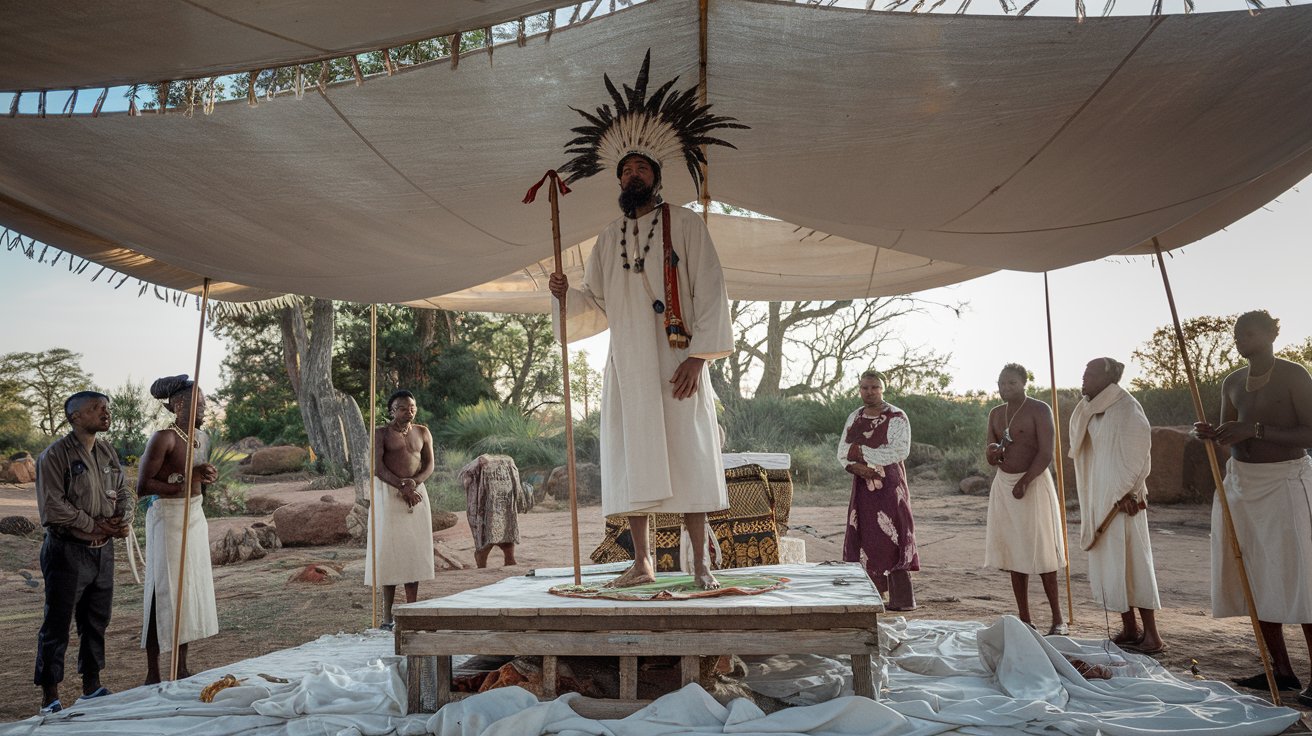
Odinani is the traditional religious beliefs and practices of the Igbo people of Nigeria. Rooted in ancient customs, it encompasses a rich tapestry of deities, spirits, and rituals. Odinani emphasizes the importance of nature, ancestors, and the interconnectedness of all things. The supreme deity, Chukwu, is believed to be the creator of the universe, while lesser gods and spirits govern various aspects of life and nature. Odinani also includes practices like divination, sacrifices, and festivals that celebrate the cycles of life and seasons. Understanding Odinani offers a glimpse into the spiritual and cultural heritage of the Igbo community, highlighting their deep respect for tradition and the natural world.
What is Odinani?
Odinani is the traditional religious beliefs and practices of the Igbo people of Nigeria. It encompasses a wide range of spiritual and cultural elements that have been passed down through generations.
- Odinani is deeply rooted in the culture and traditions of the Igbo people.
- The word "Odinani" translates to "in the land" or "of the land."
- It is a polytheistic religion, meaning it involves the worship of multiple deities.
- The supreme deity in Odinani is Chukwu, also known as Chineke.
- Chukwu is believed to be the creator of the world and everything in it.
Deities and Spirits in Odinani
Odinani features a rich pantheon of deities and spirits, each with specific roles and attributes. These entities are integral to the spiritual life of the Igbo people.
- Ala, the earth goddess, is one of the most important deities in Odinani.
- Ala is associated with fertility, morality, and the underworld.
- Amadioha is the god of thunder and lightning.
- Amadioha is also considered a god of justice and retribution.
- Ikenga is a deity representing strength, success, and personal achievement.
Rituals and Practices
Rituals and practices in Odinani are essential for maintaining harmony between humans and the spiritual world. These rituals often involve offerings, prayers, and ceremonies.
- Sacrifices, often involving animals or food, are common in Odinani rituals.
- Divination is a crucial practice, used to communicate with the spiritual world.
- The dibia, or traditional healer, plays a significant role in Odinani.
- Dibia are believed to have the ability to communicate with spirits and deities.
- Festivals are an important aspect of Odinani, celebrating various deities and natural events.
Symbols and Artifacts
Symbols and artifacts in Odinani hold deep spiritual significance. They are used in rituals, ceremonies, and as representations of deities and spirits.
- The Ofo stick is a sacred symbol representing authority and justice.
- Ikenga statues are often kept in homes as symbols of personal achievement.
- Mbari houses are sacred structures built to honor deities and spirits.
- Uli, a traditional form of body art, is used in various ceremonies.
- Masks are commonly used in rituals and festivals to represent spirits and deities.
Influence on Modern Igbo Culture
Despite the influence of Christianity and Islam, Odinani continues to play a significant role in modern Igbo culture. Many traditional practices and beliefs have been preserved and adapted.
- Many Igbo people still practice Odinani alongside Christianity or Islam.
- Traditional festivals, such as the New Yam Festival, are still widely celebrated.
- Odinani has influenced Igbo art, music, and literature.
- The concept of "Chi," or personal god, remains important in Igbo culture.
- Traditional healing practices are still used in many Igbo communities.
Challenges and Preservation
Odinani faces challenges in the modern world, but efforts are being made to preserve and promote this rich cultural heritage.
- The spread of Christianity and Islam has led to a decline in the practice of Odinani.
- Efforts are being made to document and preserve Odinani traditions.
- Cultural organizations and scholars are working to promote awareness and understanding of Odinani.
The Essence of Odinani
Odinani, the traditional religion of the Igbo people, offers a rich tapestry of beliefs and practices. Rooted in nature and ancestral worship, it emphasizes harmony with the environment and respect for elders. Central to Odinani are the Ala (earth goddess), Chukwu (supreme deity), and various spirits and deities that govern different aspects of life.
Understanding Odinani provides insight into the Igbo worldview, where every element of nature holds significance. Rituals, festivals, and symbols like the Ofo stick play crucial roles in maintaining balance and order. Despite modern influences, many Igbo people still honor these traditions, blending them with contemporary life.
Exploring Odinani reveals a profound connection between people, their ancestors, and the natural world. This ancient belief system continues to shape the cultural identity and spiritual practices of the Igbo community today.
Was this page helpful?
Our commitment to delivering trustworthy and engaging content is at the heart of what we do. Each fact on our site is contributed by real users like you, bringing a wealth of diverse insights and information. To ensure the highest standards of accuracy and reliability, our dedicated editors meticulously review each submission. This process guarantees that the facts we share are not only fascinating but also credible. Trust in our commitment to quality and authenticity as you explore and learn with us.


